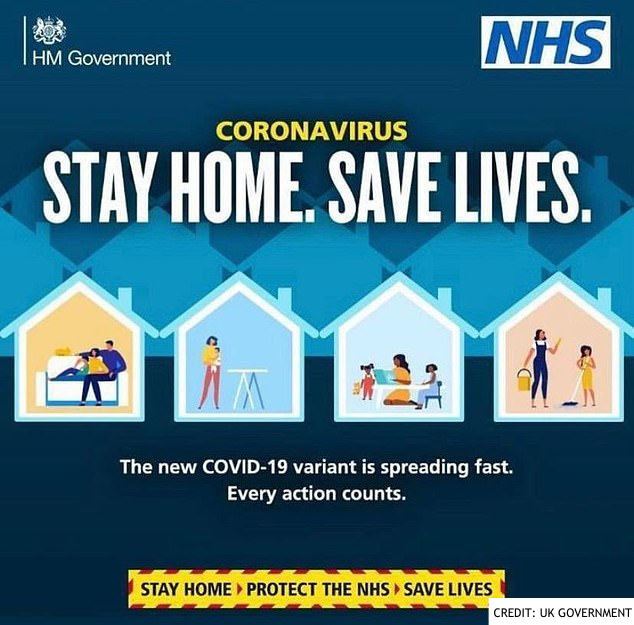Publish Date: Feb 01, 2021
An advertisement published by the UK Government on social media has been withdrawn after receiving widespread criticism for perpetuating harmful gender stereotypes.
The ad urging people to stay home to prevent the spread of COVID-19 depicts an illustration of four houses. In three of the images, women and girls are shown ironing, cleaning, caring for children and bearing the brunt of the domestic care load. Meanwhile, the only man included is depicted sitting on a couch.
This campaign comes amidst significant setbacks during the COVID-19 pandemic to previous gains in gender equality. Recent data from UN Women shows that both women and men have increased their unpaid workloads in the wake of COVID-19, but women are still doing the lion’s share. Women are also taking on a greater intensity of care-related tasks than men.
Stereotypes about the role of women as confined to the domestic or family sphere underpin multiple inequalities, including obstacles to girls' equal access to education and the advancement of women into leadership positions within the workforce.
Keith Weed, Vice-Chair of the Unstereotype Alliance UK National Chapter, called on all advertisers to learn from this misstep: “The Unstereotype Alliance UK is pleased to see that the Government has withdrawn its social media advert depicting archaic gender stereotypes as part of its ‘Stay Home. Save Lives’ message. But this is a ‘teachable moment’ that we can’t let slide. When we talk about building back better from COVID-19, advertisers must depict men sharing the burden of care in the home - taking an active part in childcare, in housework, in home schooling.”
Weed also referenced the growing gender gap in unpaid work during the pandemic: “Only then will we reclaim ground lost to COVID and ensure that people of all genders can continue working during lockdown, that women can get back to the workplace and to the boardroom table. Statistics tell us this has already been severely impacted and stereotypical portrayals like this are what send the fight for gender equality back decades. Advertisers must acknowledge the powerfully progressive role they can play. Governments, even more so.”
Whilst there have been reported advancements in progressive depictions of men and women in advertising, according to recent Unstereotype Metric data only 7% of women and 9% of men are shown in non-traditional, unstereotyped roles across the 29 markets measured. Furthermore, COVID-19 has stunted the advertising industry’s progress towards unstereotyped depictions of women; between March and November 2020, women were less likely to appear in speaking roles or to be shown as working, and more likely to be cast in traditional roles.
This is a pertinent example of why organisations must ensure that all communications, including those shared on digital channels, are rigorously checked for stereotypes and bias. The public and private sector alike must leverage advertising and communications as a vehicle to dismantle harmful stereotypes and shape a more equal society.

